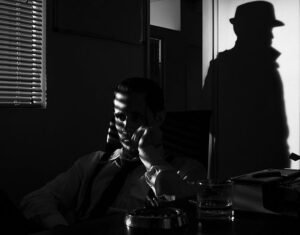Introduction: In the pursuit of justice, witnesses play a crucial role in shedding light on the truth behind complex cases. Their firsthand accounts and testimony provide invaluable evidence that can make or break an investigation. However, locating and interviewing witnesses is often a challenging and intricate process that requires skill, sensitivity, and perseverance. Join us as we explore the significance of witness location and interviewing in investigations, their methodologies, and the impact they have on the quest for truth and justice.
The Importance of Witness Location: Witnesses are essential sources of information, as their statements can corroborate or refute claims made during an investigation. The significance of locating witnesses lies in:
- Unveiling Critical Evidence: Witnesses hold essential information that may not be available from other sources. Their statements can uncover crucial details that significantly impact the outcome of an investigation.
- Ensuring Comprehensive Investigation: Finding and interviewing all relevant witnesses ensures that the investigation is thorough and unbiased, leaving no stone unturned in the pursuit of the truth.
- Providing Multiple Perspectives: Different witnesses may have varying perspectives on an event, which contributes to a more comprehensive understanding of the case.
The Art of Witness Interviewing: Conducting effective witness interviews requires a delicate approach, understanding that witnesses may be vulnerable, traumatized, or reluctant to come forward. The art of witness interviewing involves:
- Building Rapport: Establishing a trusting and comfortable environment is crucial to encourage witnesses to share their accounts openly and honestly.
- Asking Open-Ended Questions: Open-ended questions encourage witnesses to provide detailed and unfiltered information, offering valuable insights into the case.
- Active Listening: Investigators must listen attentively to witness responses, seeking clarification and further details when necessary.
- Addressing Concerns: Witness safety and confidentiality are paramount. Assuring witnesses of protection and confidentiality can alleviate concerns and encourage cooperation.
- Assessing Credibility: Evaluating witness credibility is vital to determine the accuracy and reliability of their statements.
Challenges and Ethical Considerations: Witness location and interviewing come with their share of challenges:
- Witness Reluctance: Some witnesses may fear retaliation, refuse to come forward, or provide misleading information.
- Memory Bias: Witnesses’ recollections may be influenced by personal biases or external factors, affecting the accuracy of their statements.
- Privacy and Safety: Investigators must consider witness privacy and safety, particularly in high-profile or sensitive cases.
Conclusion: Witness location and interviewing are intricate yet essential aspects of any investigation. The skillful gathering of witness statements and testimony can paint a vivid picture of events, providing a foundation for truth-seeking and justice. As we navigate the complexities of these processes, let us remember the ethical responsibilities involved, ensuring witness protection, confidentiality, and sensitivity throughout the investigation. By upholding the integrity of witness interviews, we can unravel the truth, honor the rule of law, and bring forth a just society where the voices of witnesses are heard and valued.



